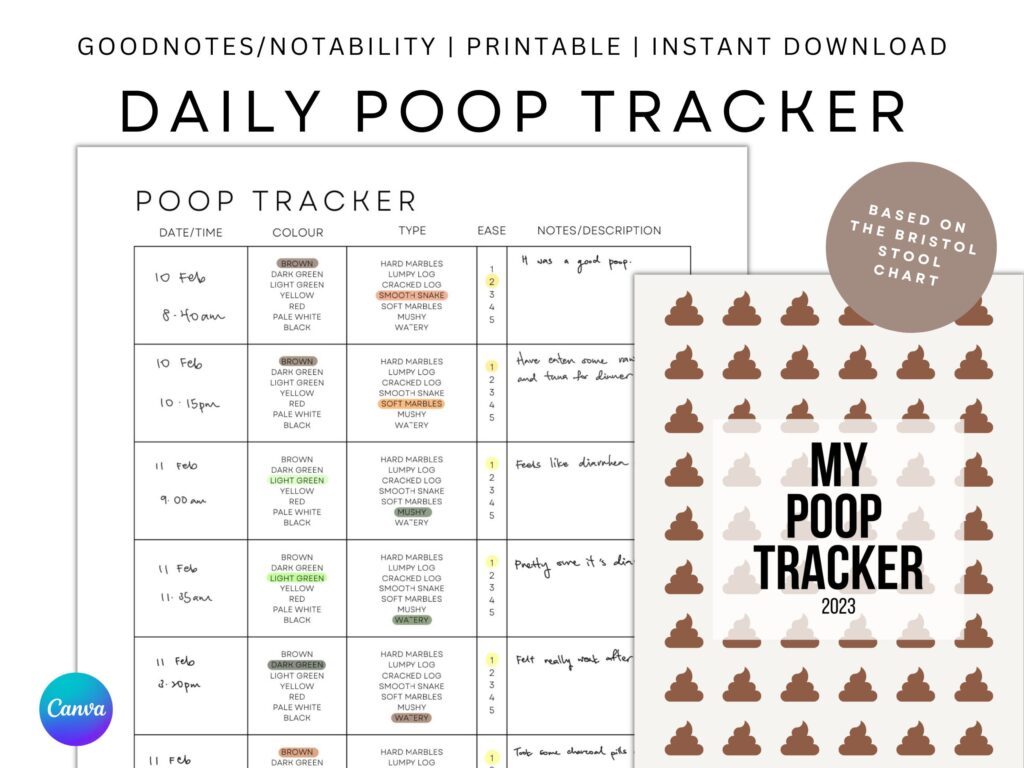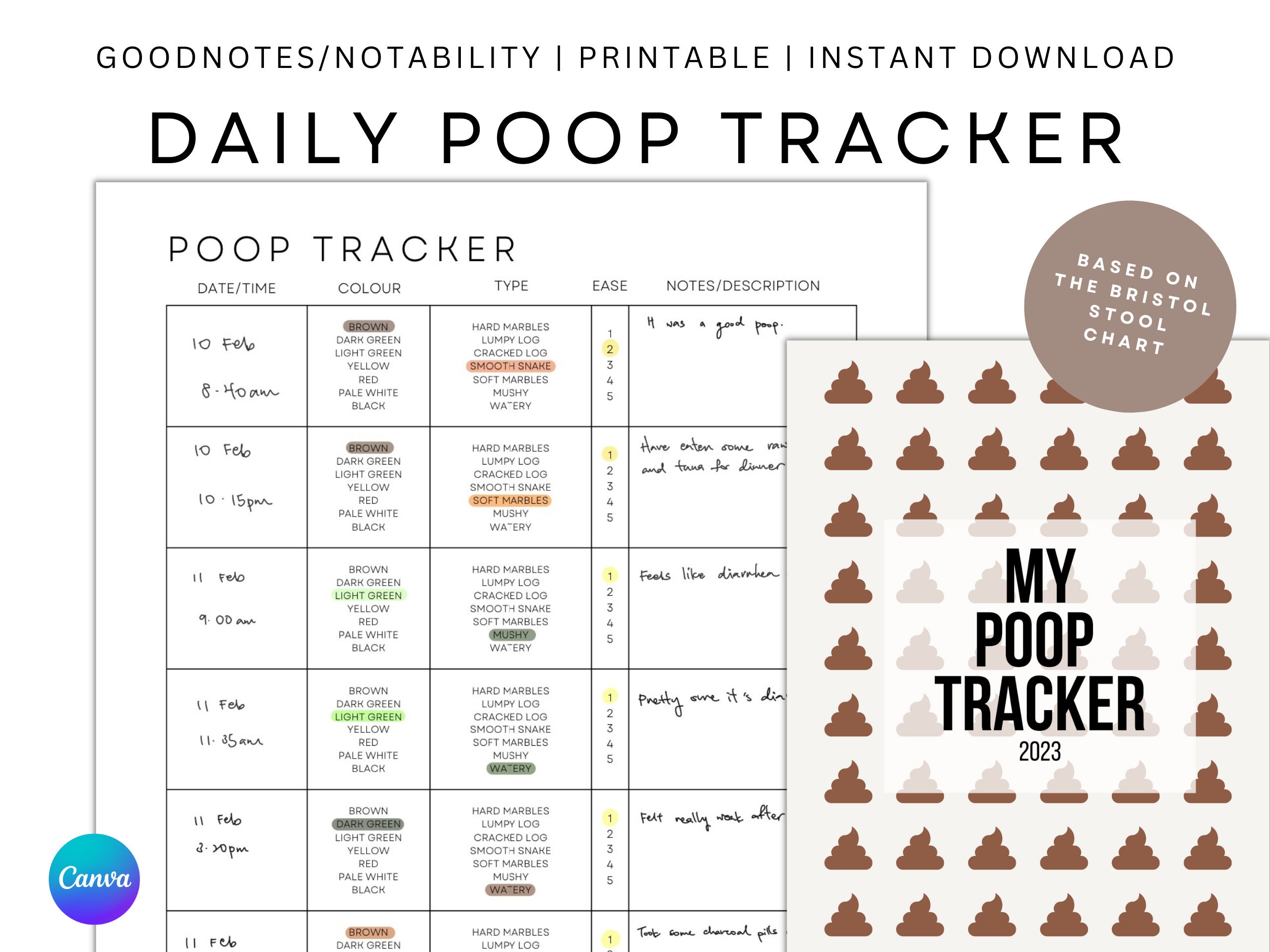
The Rise of the Poop App: Tracking Your Bowel Movements in the Digital Age
In an era where technology permeates nearly every aspect of our lives, it should come as no surprise that even our most private bodily functions are now subject to digital tracking. Enter the “poop app,” a growing category of mobile applications designed to help users monitor and analyze their bowel movements. While the concept might initially raise eyebrows, these apps are gaining traction as valuable tools for personal health management and early detection of potential medical issues. This article delves into the world of poop apps, exploring their features, benefits, and the growing interest in digital health tracking.
What is a Poop App?
A poop app, at its core, is a mobile application that allows users to log and track their bowel movements. These apps typically provide a platform to record various characteristics of your stool, such as:
- Consistency: Using tools like the Bristol Stool Scale, users can categorize their stool from hard and lumpy to watery and liquid.
- Color: Users can note the color of their stool, which can be an indicator of various health conditions.
- Frequency: The app tracks how often bowel movements occur.
- Size: Users can estimate the size of their stool.
- Associated Symptoms: Users can log any accompanying symptoms, such as abdominal pain, bloating, or blood in the stool.
Beyond simple logging, many poop apps offer additional features such as data visualization, trend analysis, and integration with other health tracking apps. Some even provide personalized insights and recommendations based on the user’s tracked data.
Why Track Your Poop? The Benefits of Using a Poop App
The idea of meticulously tracking your bowel movements might seem strange to some, but there are several compelling reasons why individuals are turning to poop apps:
Early Detection of Health Issues
Changes in bowel habits can be early warning signs of various health conditions, including:
- Irritable Bowel Syndrome (IBS): Tracking stool consistency and frequency can help individuals with IBS identify triggers and manage their symptoms.
- Inflammatory Bowel Disease (IBD): Changes in stool color, consistency, and the presence of blood can be indicators of IBD, such as Crohn’s disease and ulcerative colitis.
- Infections: Diarrhea or changes in stool color can signal a gastrointestinal infection.
- Colon Cancer: While not a diagnostic tool, tracking bowel habits can help individuals identify changes that warrant further investigation by a healthcare professional.
Improved Digestive Health
By tracking their bowel movements, users can gain a better understanding of their digestive health and identify factors that may be contributing to digestive issues. This can include:
- Dietary Triggers: Identifying foods that cause constipation, diarrhea, or other digestive symptoms.
- Stress Levels: Recognizing the impact of stress on bowel habits.
- Medication Side Effects: Monitoring how medications affect bowel movements.
Enhanced Communication with Healthcare Professionals
Having detailed records of bowel movements can be incredibly valuable when consulting with a doctor or gastroenterologist. The data collected by a poop app can provide healthcare professionals with a more comprehensive picture of a patient’s digestive health, leading to more accurate diagnoses and treatment plans. [See also: Preparing for a Doctor’s Appointment: What to Bring]
Popular Poop Apps on the Market
Several poop apps are available for both iOS and Android devices. Some of the most popular options include:
- Poop Tracker: A simple and straightforward app for logging bowel movements with options to track consistency, color, and symptoms.
- Cara Care: A comprehensive digestive health app that includes a poop tracker, symptom diary, and personalized insights.
- Bowelle: Designed specifically for individuals with IBS, Bowelle allows users to track bowel movements, diet, and stress levels.
- MyFitnessPal: While not solely a poop app, MyFitnessPal allows users to track various health metrics, including bowel movements, alongside diet and exercise.
The Bristol Stool Scale: A Key Feature of Poop Apps
Many poop apps utilize the Bristol Stool Scale, a visual aid that categorizes stool into seven types based on consistency and shape. This scale provides a standardized way for users to describe their bowel movements, making it easier to track changes over time and communicate with healthcare professionals. Understanding the Bristol Stool Scale is crucial for effectively using a poop app.
The seven types of stool according to the Bristol Stool Scale are:
- Separate hard lumps, like nuts (hard to pass)
- Sausage-shaped, but lumpy
- Like a sausage but with cracks on its surface
- Like a sausage or snake, smooth and soft
- Soft blobs with clear-cut edges (passed easily)
- Fluffy pieces with ragged edges, a mushy stool
- Watery, no solid pieces (entirely liquid)
Privacy Concerns and Data Security
As with any health tracking app, privacy and data security are important considerations when using a poop app. Users should carefully review the app’s privacy policy to understand how their data is collected, stored, and used. It’s also important to choose an app from a reputable developer with a strong track record of data security. [See also: Protecting Your Health Data Online]
The Future of Poop Apps and Digital Health
The rise of poop apps reflects a growing trend towards digital health tracking and personalized medicine. As technology continues to evolve, we can expect to see even more sophisticated poop apps with features such as:
- AI-powered analysis: Using artificial intelligence to analyze stool data and provide personalized insights and recommendations.
- Integration with wearable devices: Connecting poop apps with wearable devices to track other health metrics, such as activity levels and sleep patterns, for a more holistic view of health.
- Telemedicine integration: Facilitating virtual consultations with healthcare professionals based on data collected by the app.
Conclusion: Embracing the Digital Age of Digestive Health
While the concept of a poop app might seem unconventional, these apps offer a valuable tool for individuals seeking to improve their digestive health and detect potential medical issues early on. By tracking bowel movements and gaining a better understanding of their digestive patterns, users can empower themselves to make informed decisions about their health and communicate effectively with healthcare professionals. As technology continues to advance, poop apps are poised to play an increasingly important role in the future of digital health. The key is to use these tools responsibly, prioritize data privacy, and consult with healthcare professionals for any concerns about digestive health. So, while it might not be the most glamorous topic, tracking your poop with an app could be a surprisingly effective way to stay on top of your health.
Ultimately, the decision to use a poop app is a personal one. However, the potential benefits for monitoring and understanding your body’s signals are undeniable. With careful consideration of privacy and responsible usage, a poop app could be a valuable addition to your health management toolkit.

